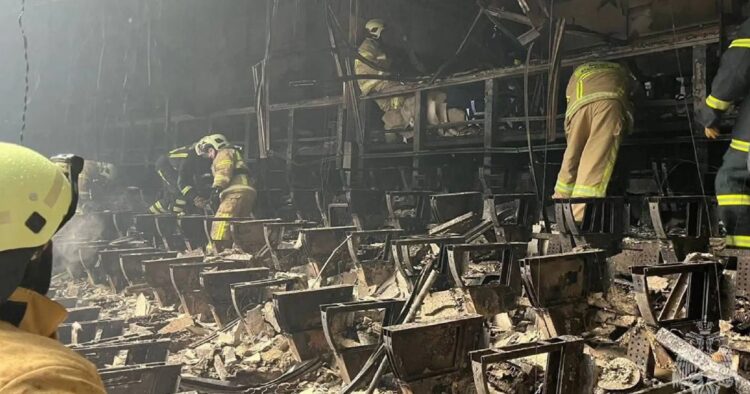Last week’s devastating attack on a concert hall in Moscow has claimed the lives of 140 people, according to Russian officials. The death toll rose after another victim succumbed to injuries in the hospital. Five individuals remain in critical condition, despite doctors’ efforts to save them.
The attack took place at Crocus City Hall, a popular venue in northwestern Moscow. Gunmen armed with automatic rifles opened fire on concertgoers and set the venue ablaze, resulting in the deadliest terrorist incident in Russia in nearly two decades.
The Islamic State group claimed responsibility for the attack, which targeted thousands of attendees. Both U.S. and French intelligence agencies corroborated this claim, pointing to the involvement of an IS entity.
Following the attack, Russian authorities swiftly took action, arresting 11 individuals, including four suspected gunmen. The suspects, identified as Tajik nationals, appeared in court facing terrorism charges. However, there were signs of physical abuse, raising concerns about their treatment while in custody.
Amidst the investigations, Russian officials have accused Ukraine and Western powers of complicity in the attack, allegations vehemently denied by Kyiv. President Zelenskyy of Ukraine rebuked President Putin, accusing him of using the tragedy to bolster support amid ongoing conflict in Ukraine.
FSB chief Alexander Bortnikov implicated Western intelligence agencies in the incident, suggesting they collaborated with radical Islamists. Despite claims that the gunmen were attempting to flee to Ukraine, Belarusian President Lukashenko contradicted this, stating the suspects feared border controls in Belarus.
The Islamic State group has a history of targeting Russia, particularly following its military involvement in Syria. In 2015, the group downed a Russian jetliner, resulting in the deaths of 224 individuals. Putin has warned of potential future attacks, alleging Western involvement.
Prior to the attack, there were warnings from the U.S. Embassy about potential threats to public gatherings in Moscow. However, Putin dismissed these warnings as attempts to intimidate Russians and undermine the government. Russian officials expressed gratitude for the warning but considered it too vague to prevent the tragic event.

















Comments